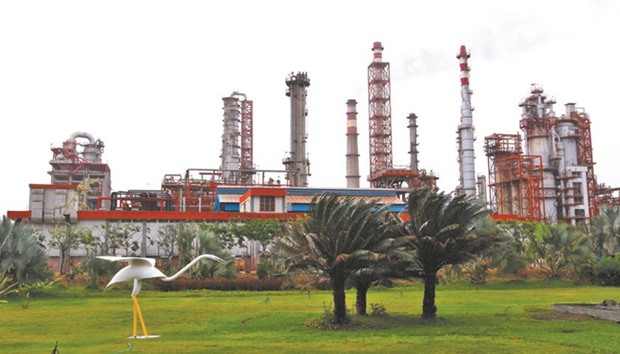Freed from a layer of fusty bureaucracy, India’s state refiners are helping the country evolve an oil market that reflects its status as both the world’s fastest growing major economy and oil consumer.
Changes to import rules mean officials from India’s state-owned oil refiners no longer have to stand in the corridors of the oil ministry waiting for government bureaucrats to approve their spot imports.
They can now strike deals in as little as two hours, resulting in savings for consumers and lower costs for the companies.
This freedom allows state refiners, which control two-thirds of India’s 4.6mn barrels per day (bpd) of processing capacity, to compete on a more level playing field with less-regulated private refiners like Reliance Industries Ltd, and is encouraging investment in infrastructure.
“Earlier, I was required to reconcile my crude requirements with the availability of government officials.
Now, I can float a tender whenever I want,” said A K Sahoo, head of finance at Mangalore Refinery and Petrochemicals Ltd.
“There is definitely a saving in crude cost and needs to borrow for working capital requirements.”
BK Namdeo, head of refineries at state-run Hindustan Petroleum Corp, said the new system that was introduced in April has improved pricing efficiency by allowing him to react faster to changes in market conditions.
“State refiners will definitely be getting some monetary gains because of short duration tenders,” said Tushar Tarun Bansal, a director at Singapore-based consultancy Ivy Global Energy.
The state refiners hope that the improved flexibility will boost refining profit margins toward the levels of private firms.
State-run refiners have historically reported margins of $6 to $10 per barrel versus almost $15 for firms like
Reliance.
In a sign of that growing confidence, Bharat Petroleum Corp Ltd (BPCL) plans to spend $6.75bn through 2022 to boost refining capacity by 62% to meet rising fuel demand.
Helped by the loosened rules and surging fuel demand, foreign investors are seeking opportunities in an economy growing at 8% annually and where the population is set to overtake China’s within a decade.
A group led by Russian oil major Rosneft and European commodity trading giant Trafigura are buying a stake in private refiner Essar Oil in a $13bn deal.
“We believe that volumes are going to grow in this market from the commodities side,” said Raoul Bajaj, Trafigura’s Indian chief executive
officer.
Bajaj said India’s oil demand grew by an annual 10% in 2016 by 400,000 bpd. “This is equivalent to what we’ve seen from China in one of its stronger growth years. We’d expect this strong growth in oil demand in India to
continue.”
Other foreign firms are keen to get in on the action.
British oil major BP plans to open fuel stations in India, joining European rival Royal Dutch Shell in the fight to supply a fuel market that needs to feed the demand of some 20mn new motor bikes that hit the road every month.
Allowing state refiners the freedom to make oil import decisions supports Prime Minister Narendra Modi’s drive to improve India’s ease of doing business.
However, refinery officials said they have to maintain transparency in crude purchases so they cannot trade on global oil and refined product exchanges where counterparties are often anonymous or known only to the exchange.
The state refiners are still pushing ahead with plans to open offices in Singapore, Asia’s main oil trading centre, with Indian Oil Corp, BPCL and Hindustan set to expand in the city-state as a way to keep closer tabs on the market and react quickly to changes.
“When I am trying to procure more and more spot, my possibilities are increasing if I operate faster,” said R Ramachandran, head of refineries at BPCL.

A refinery of Essar Oil, which runs India’s second biggest private sector refinery, is seen in Vadinar, Gujarat. Freed from a layer of fusty bureaucracy, India’s state refiners are helping the country evolve an oil market that reflects its status as both the world’s fastest growing major economy and oil consumer.
